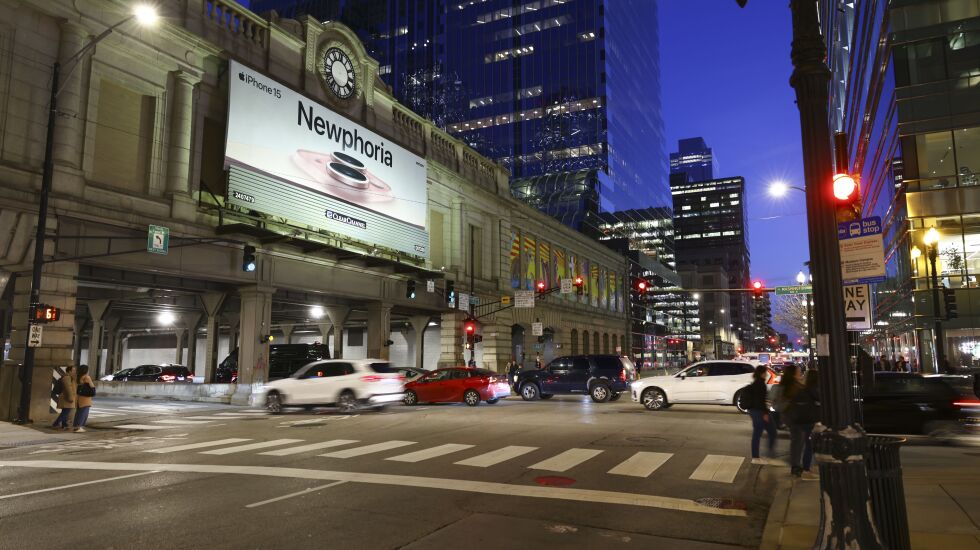
A tent encampment under viaducts in the West Loop that has become “a magnet for narcotics and violent crime” will be cleared starting next week, Ald. Bill Conway (34th) announced Friday.
In a statement, Conway said the mayor’s office authorized power-washing under the viaducts, “which allows for removal of the large tents that have been a source of recent crime and controversy.”
Last week, a 59-year-old man was killed “during a drug deal gone bad,” Conway said. The man was found unresponsive with a gunshot wound to his chest in the 500 block of West Lake Street. Police say he was shot a quarter of a mile away in the 100 block of North Clinton Street.
The area where the man was shot is next to the homeless encampment that has been the subject of an ongoing dispute between Conway and Mayor Brandon Johnson’s administration.
The area, adjacent to Union Station and the Ogilvie Transportation Center, gets heavy foot traffic from commuters, and neighbors have said they’ve witnessed daytime drug-dealing and drug use.
The viaducts “are no longer a peaceful encampment but rather have become a magnet for narcotics and violent crime,” Conway said.
Brendan Nyhan, 34, who lives across the street from the area where the man was killed last week, told the Sun-Times he and his fiancée, Alexis Aria, 29, were awakened by gunfire and witnessed the aftermath of the shooting from their window.
“It’s scary,” Nyhan said. “I’ve seen multiple other dead bodies from overdoses, not just related to violence. Constantly, people are loaded onto ambulances here. I see drug deals every day. I see drug use out in the open every day.”
During a news conference near the area on Dec. 7, Conway said in October he asked the mayor to address safety concerns, but he was only offered help in exchange for votes on two of the mayor’s proposals pending before the City Council.
Conway said previous plans to remove the encampment were halted after the alderperson didn’t vote the way the mayor wanted.
In mid-November, about 1,500 residents signed a petition submitted to the mayor’s office asking for help.
Conway said people living under the viaducts have been notified and asked to remove their personal items so the cleanup can take place. Seven people accepted rehousing help from the Chicago Department of Family and Support Services, and 15 people declined the assistance.
“This expanded cleanup effort is a big step forward, but I recognize it does not solve this problem. Many people may return, some immediately, as these viaducts remain a viable location for drug-dealing and distribution,” Conway said.
Contributing: Mary Norkol and Isabel Funk







